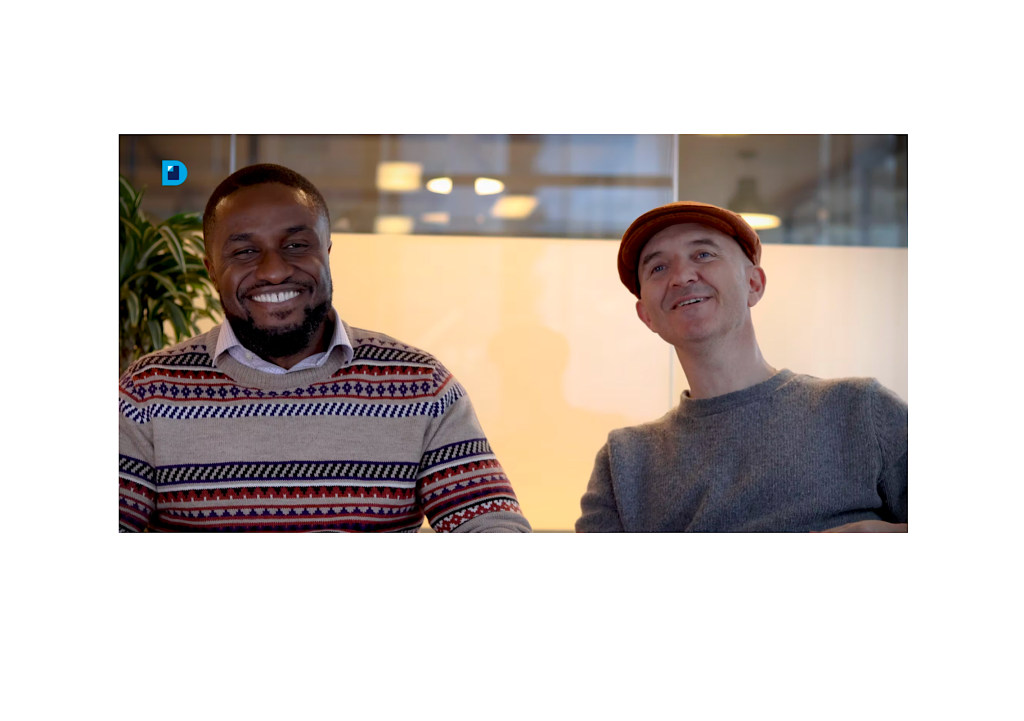
Definely, the AI-driven contract-focused company, has raised $30m in Series B funding. Revaia led the round, which also included legal tech giant Clio, among others. This takes its total funding to around $40m since Nnamdi Emelifeonwu and Feargus MacDaeid started the UK company in 2020, (see AL In-depth Interview below with the founders.)
The business said that it nearly tripled its annual recurring revenue (ARR) in 2024 and now works with around 100 in-house legal teams and law firms. The US also accounts for 30% of its revenue now.
Given the above, the company will use part of the new cash to expand more into the US, as well as continuing to build out of AI and agentic capabilities – which it has recently expanded with a range of new agents.
—
And now the AL In-depth Interview with co-founders, Nnamdi Emelifeonwu and Feargus MacDaeid.
What does this mean to you personally?
Nnamdi: It’s a significant milestone for Definely and validation of the vision we’ve had from day one. Personally, it’s humbling and energising, it reinforces that what we’re building has real impact. The legal industry is on the cusp of transformation, and to be at the forefront of that shift is both a privilege and a responsibility. The backing we’ve received is also a vote of confidence in our team and in the market need we’re addressing.
How much will agentic AI change the legal world?
Feargus: When I think of Agentic AI and legal, I think it could be as impactful as what Henry Ford was to manufacturing. Ford looked not just at the end product, he decomposed the production line into specialist tasks and as each task was completed the outputs were put together and then the automobile was assembled. Legal is not that much different. When putting a contract together, there are lots of small tasks that need to be completed, parts that need to be put together to achieve an output.
Agentic AI has the ability to take over some of those specialist tasks while the lawyer acts as a quality assurance, validator and orchestrator… a Foreman in some ways. We all work in digital factories of some form or another and Agent’s will be our workforce helping us to produce the outputs required. In this sense, there are so many Agents that can be built and once you start introducing communication between them, a whole world of possibilities opens up…from helping with research, to proofing, finding text, review and drafting. In any event, Agentic AI will change how lawyers work and in some ways how they think about their work too.
How much has developing agentic AI tools changed Definely (ie you started with a very different tech stack.)
Feargus: On a product level, it really has opened up a world of problems that we can now create solutions for. When Nnamdi and I started out on this journey, there were so many times that we were thinking, ‘if only the technology existed to do this, wouldn’t that be great…’ We have a very unique way of approaching pain points and now that we can build tools to address that, is incredible.
From a more technical point, it is very different. We have moved on a long way from Reg Ex patterns, although there is still room for rules, especially in such a domain specific industry, how we build and approach design has shifted dramatically. Where once we were looking for .Net engineers, we are now looking for ML engineers, Dev Ops need ML Ops, iteration and features are accelerating. Another thing to consider is how we can leverage the years of experience that we have gained from working on edge cases and developing in Word. We have a lot of great and meaningful products that we have built and certainly do not want to throw the baby out with the bath water.
Our approach has shifted into looking at our products and imagining them as tools for agents to access and to call upon when given a task to complete. We now live in a world of MCP Servers, SLM’s, LLM’s Python, GPUs and so many other considerations. Things move quicker, the art of the possible has become broader and it is exciting to be at the edge of innovation in a sector that is really having its time in the sun
And, what next? What is your goal for the next year or so?
Nnamdi: Our focus is on evolving from assistive to autonomous legal AI. Today, most AI tools are assistive – they help users by speeding up tasks like reviewing, drafting, or summarising, but they still rely heavily on human input and oversight. Autonomous or agentic AI goes a step further: it can understand intent, make decisions, and complete complex legal tasks with minimal intervention, while remaining within clearly defined guardrails.
Over the next year, we’ll be pushing toward more autonomous workflows. We’ll also deepen our integrations into legal teams’ daily workflows and expand into new markets. The ultimate goal: to become the operating system for legal knowledge and work – a trusted AI partner that legal teams can rely on from first draft to final signature.
Thanks, and congrats on the fresh funding!
—
You can find more about Definely here.
—
P.S. AL is in California for Legal Innovators and for some R&R, and so won’t be publishing much else this week.
Discover more from Artificial Lawyer
Subscribe to get the latest posts sent to your email.

